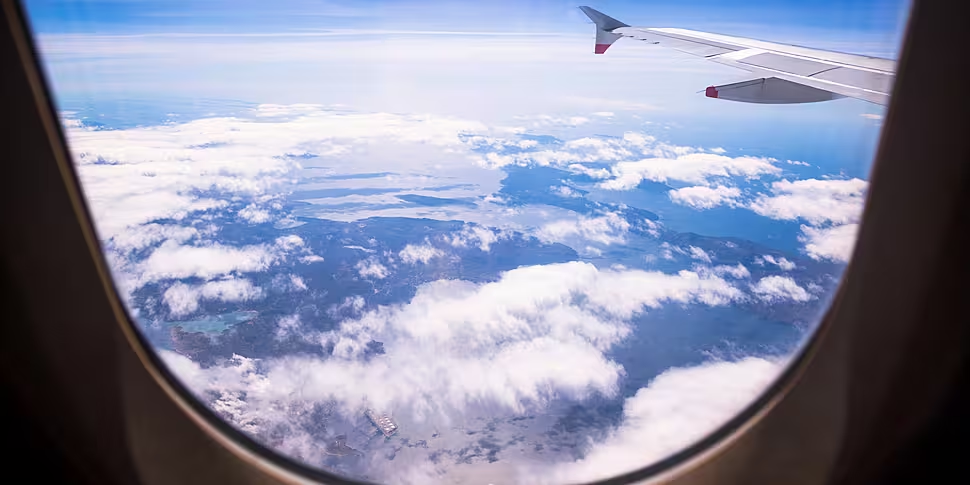With restrictions likely to be eased in many countries over the coming weeks, attention is already turning to the summer holiday season.
2020 and 2021 saw very slow reopenings, leaving many people and families reluctant to book holidays due to uncertainty over lockdowns and travel rules.
However, with restrictions in many countries set to be eased much faster in 2022, the holiday and tourism industry is very much hoping this year will finally be the year where international travel surges again.
Ryanair, for example, announced just yesterday what it said will be its largest ever Dublin schedule.
On The Pat Kenny Show, Eoghan Corry - editor of Travel Extra - said airlines and other companies will be trying to ease the "great hesitancy" that's out there about bookings.
He said that back in 2019 people would book a Ryanair flight an average of six weeks before travel - but that's now shrunk to just two weeks, meaning it's much more difficult for airlines to plan ahead.
Traditionally, one-third of holidays for the year were sold in January - but there's also no indication that's happening at the moment.
Still, Eoghan said there's undoubtedly pent-up demand for travel - and plenty of extra benefits for those who book their summer holiday soon.
Destinations
One of the big questions for many is which destinations are open to Irish tourists.
Many countries have almost fully reopened their borders to international tourism - but that's not the case everywhere.
Eoghan said the Omicron wave showed the EU Digital COVID Cert system held up well, even if some countries - Ireland included - added extra testing measures temporarily in a bid to curb the spread of the new variant.
He said: “Travel within Europe… we’re pretty secure that nothing’s going to dislodge that.
"But long-haul is still a bit iffy.”
He noted that destinations such as Thailand and Hong Kong have recently put in strict measures limiting international tourism in response to Omicron, although the Thailand restrictions are due to ease from next month.
Countries such as New Zealand and Japan, meanwhile, have also yet to properly open up their borders to international tourists, although are planning for a phased reopening.
Despite that, Eoghan said around 80 countries in total now accept Digital COVID Certs as proof of vaccination, recovery or negative test results - and the likes of the US and Canada are now open to Irish tourists, alongside many South American and other international destinations.
For now, however, European destinations like Spain and Portugal are set to remain the most popular routes.
In terms of the best time to book, Eoghan observed: “If you wait and wait, it’s unlikely the prices will come down. What might happen is those extra options and little incentives might be withdrawn, and the booking policy mightn’t be as generous.
“There’s no reason not to book now - I don’t think we’re going to do better.
"Look at routes such as Malaga and Faro… prices available for July and August are what you wouldn’t have seen at the start of January before COVID.”
Cancellation policies and travel insurance
Airlines were forced to cancel many flights during the pandemic, and travel restrictions meant they introduced new cancellation or 'flexible booking' policies in a bid to encourage more people to book.
Cancellation policies vary from airline-to-airline - but Eoghan said that, in general, the policies are now much more generous.
Aer Lingus, for example, allows for free, unlimited changes for flights up to the end of September 2022.
However, Eoghan cautioned: “The one thing to watch is you can’t push a booking to New York for €199 to a flight that’s now €400 - you do need to pay the balance."
He said Ryanair so far has been increasing the duration of their more generous 'change flight' policy on a monthly basis.
Meanwhile, there’s been a big increase in sales of travel insurance.
Many policies now cover COVID-related issues - such as having to cancel a flight abroad due to a positive test result or being stuck abroad due to COVID.
Eoghan advised people to check their own policies - some insurers might require an extra €20 or so for COVID-related cover.
However, some destinations are so anxious to get tourists back that they’re offering partial or complete free travel insurance with COVID cover - for example, the Murcia region in the south of Spain
Eoghan said: “Tourist boards, holiday companies, and airlines are all really anxious to stimulate the market and overcome that hesitancy."









